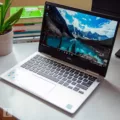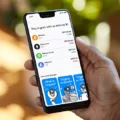If you are experiencing slow download speeds on your PC, it can be frustrating and time-consuming. Slow download speeds can be caused by various factors, including network issues, system configurations, and software-related problems. In this article, we will explore some of the most common reasons why your download speed might be slow on your PC and some tips to help you improve your download speed.
1. Network Issues
One of the most common reasons for slow download speeds is network issues. A weak Wi-Fi signal or a slow internet connection can significantly impact download speeds. To determine if your internet connection is the issue, you can perform a network speed test. There are many online tools available to check your internet speed, and if you find that your speed is slow, try resetting your router or contacting your internet service provider.
2. System Configurations
Another reason why your download speed might be slow could be due to your system configurations. Your PC’s hardware and software configurations can significantly impact download speeds. Ensure that your PC meets the minimum requirements for the software or application you are downloading. Additionally, check if there are any background processes or applications running that could be consuming network bandwidth. If so, close them to free up network resources for your download.
3. Software-Related Problems
Software-related problems can also cause slow download speeds. Antivirus software, firewalls, and other security applications can interfere with your download speed. Ensure that your security software is not blocking the download and try disabling it temporarily to see if it improves your download speed. Additionally, check if there are any updates available for the software you are downloading, as this can often resolve performance issues.
4. Downloading from Busy Servers
Sometimes, slow download speeds can be caused by downloading from busy servers. If you are downloading large files from popular websites, you may experience slower download speeds due to the high demand on the server. To improve your download speed, try downloading the file during off-peak hours, or use a download manager that can optimize your download speed by splitting the file into multiple parts.
5. Outdated Network Drivers
Another reason why your download speed may be slow could be due to outdated network drivers. Ensure that your network drivers are up to date by checking the manufacturer’s website for the latest driver updates. Outdated network drivers can significantly impact network performance, including download speeds.
Slow download speeds can be frustrating, but there are many reasons why your download speed may be slow. By performing a network speed test, checking your system configurations, and ensuring that your security software is not interfering with your download, you can improve your download speed. Additionally, downloading during off-peak hours and checking for driver updates can also help you optimize your network performance.

Fixing Slow Download Speed on a Computer
If you are experiencing slow download speeds on your computer, there are several steps you can take to fix the issue:
1. Restart your computer: This is the simplest and quickest solution. Sometimes, a simple restart can help to clear out any temporary glitches that might be causing the slow download speeds.
2. Run the troubleshooter: Windows has a built-in troubleshooter that can help you identify and fix any issues that might be causing slow download speeds. To run the troubleshooter, go to Settings > Update & Security > Troubleshoot > Internet Connections.
3. Test your network speed: You can use online tools such as Speedtest.net to check your internet speed. If your speed is significantly slower than what you are paying for, contact your internet service provider (ISP) to troubleshoot the issue.
4. Upgrade your data plan: If you are on a limited data plan, upgrading to a higher plan with more data allowance might help to improve your download speeds.
5. Disable background applications: Background applications can consume bandwidth and slow down your download speeds. To disable background applications, go to Task Manager > Processes and end any processes that you don’t need.
6. Queue up your downloads: If you are downloading multiple files, queuing them up can help to improve your download speeds. This is because your computer can download the files in a more efficient manner.
7. Switch to another modem: If you are using a modem that is old or outdated, switching to a newer modem can help to improve your download speeds.
8. Use an Ethernet cable: If you are using Wi-Fi, switching to an Ethernet cable can help to improve your download speeds. Ethernet cables provide a more stable and faster connection than Wi-Fi.
By following these steps, you can improve your download speeds and enjoy a faster and more efficient internet experience.
Causes of Slow PC Internet Download Speed
There could be several reasons why your PC’s Internet download speed is slow. One of the most common reasons is the presence of spyware and viruses that can affect the performance of your computer. These malicious programs can slow down your Internet connection by consuming the resources of your computer.
Apart from spyware and viruses, the performance of your computer can also be affected by add-on programs, the amount of memory your computer has, hard disk space and condition, and the programs that are running. If you have too many programs running at the same time, it can slow down your Internet speed.
To improve the performance of your computer and speed up your Internet, you can take several steps. Firstly, you can run a virus scan and remove any spyware or viruses that are present on your computer. Secondly, you can uninstall any unnecessary add-on programs and clear the cache and cookies of your browser.
Other steps you can take include upgrading your computer’s memory, cleaning up your hard disk, and using a wired Ethernet connection instead of Wi-Fi. By taking these steps, you can improve the performance of your computer and enjoy faster Internet download speeds.
Improving Download Speed on PC
To improve download speed on your PC, you can take the following steps:
1. Check your internet connection: Make sure that your internet connection is stable and strong enough to support high-speed downloads. You can perform a speed test to check your internet speed.
2. Use a wired connection: If you are using a Wi-Fi connection, switch to a wired connection as it provides a more stable and faster connection.
3. Close unnecessary applications: Close any applications that may be using your internet connection, such as streaming services or file-sharing programs, as they can slow down your download speed.
4. Disable background updates Disable automatic updates for applications or operating systems running in the background, as they can consume your bandwidth and slow down your download speed.
5. Use a download manager: Download managers can optimize your download speed by dividing the file into smaller chunks and downloading them simultaneously, which can increase your download speed.
6. Disable firewall or antivirus: Your firewall or antivirus software may be blocking your download, so try disabling them temporarily to see if it improves your download speed.
7. Use a different browser: Some browsers may be slower than others for downloads, so try using a different browser to see if it improves your download speed.
By following these steps, you can improve your download speed on your PC and enjoy faster downloads.
Conclusion
Download speed can be affected by various factors such as network speed, data plans, background applications, and modem. To improve download speed, users can restart their systems, run troubleshooters, test network speed, upgrade data plans, disable background applications, queue up downloads, switch to another modem, and use Ethernet cables. It is also important to keep the system free from spyware and viruses, as they can significantly affect internet performance. By following these steps, users can ensure a faster and smoother downloading experience.








